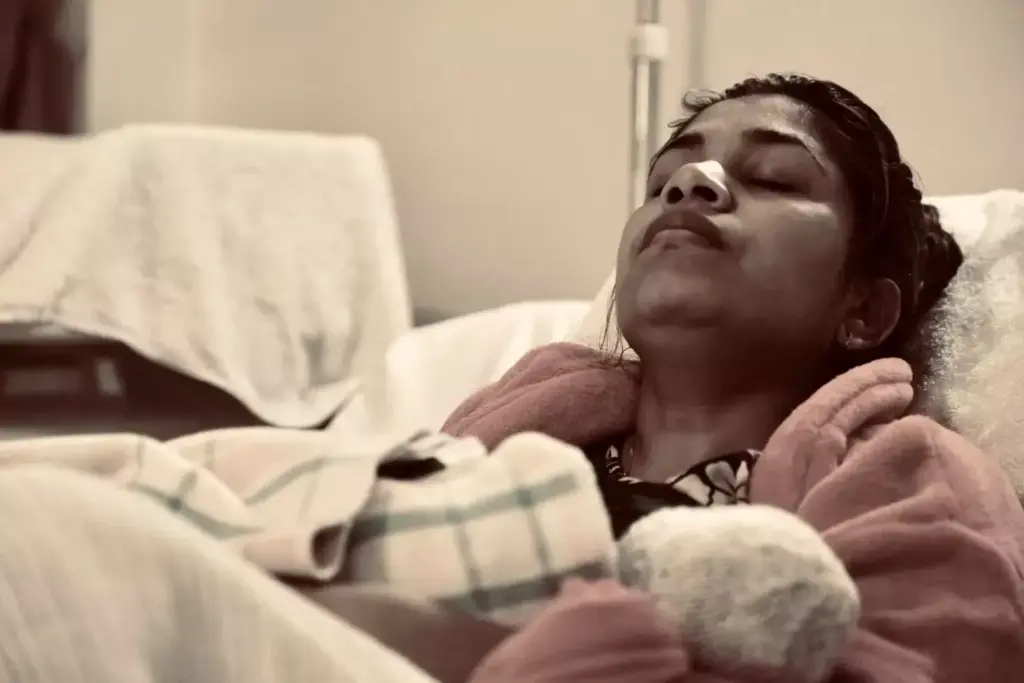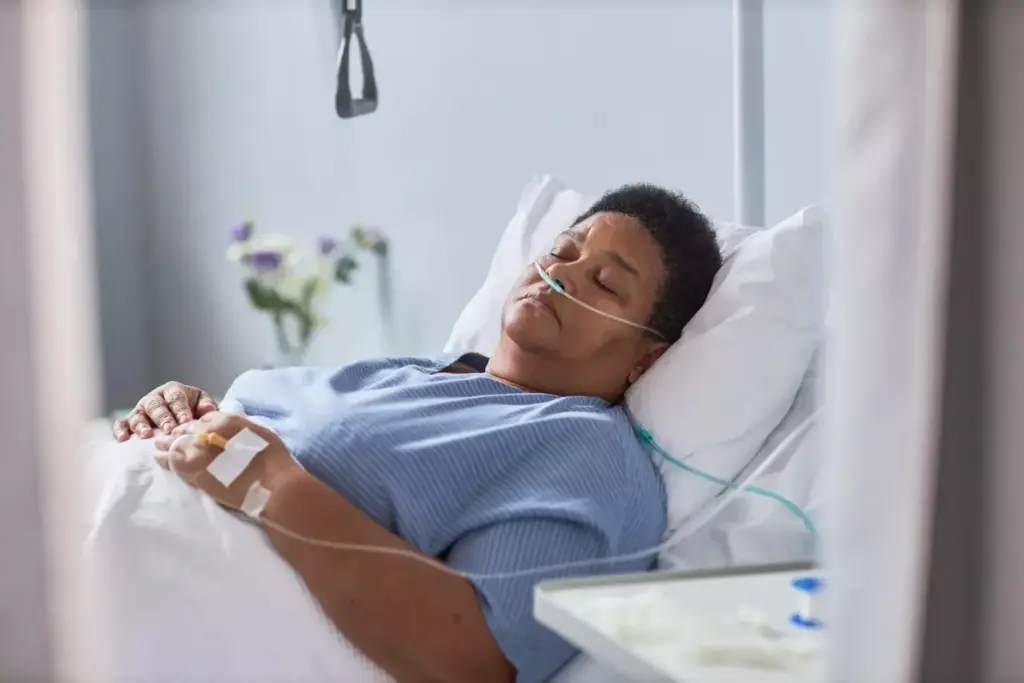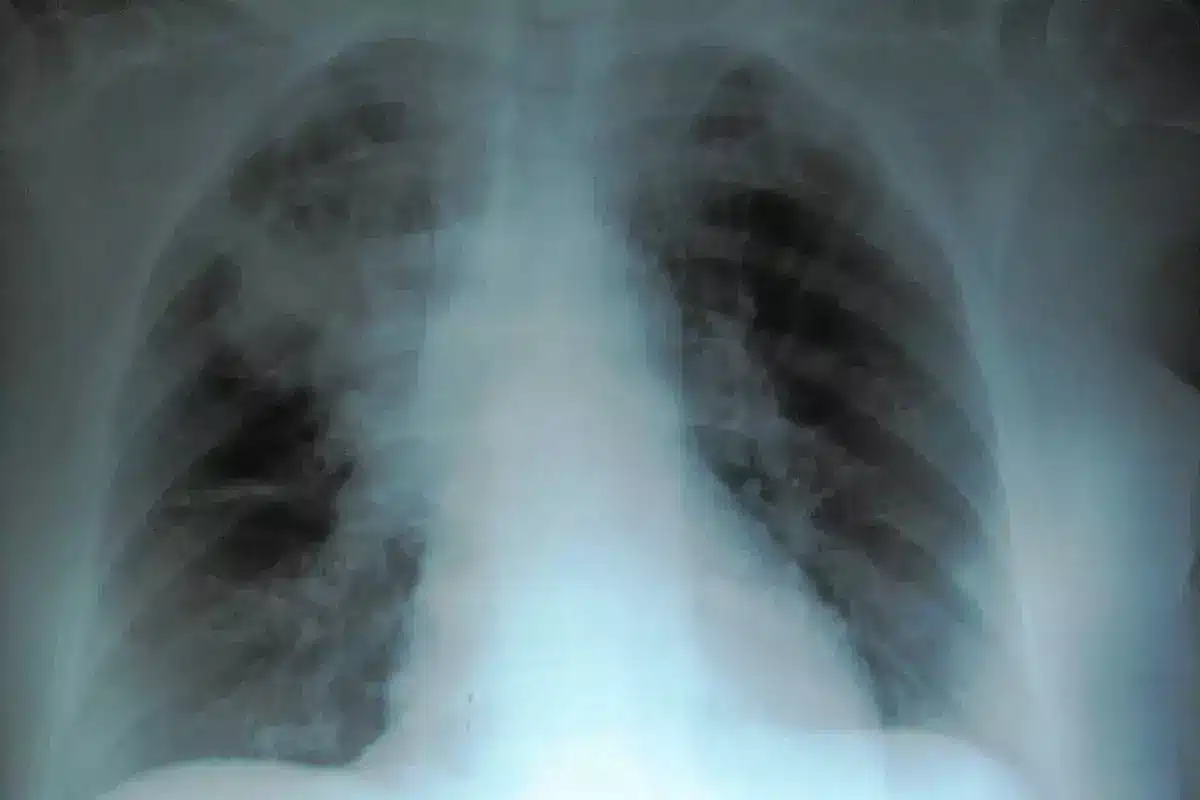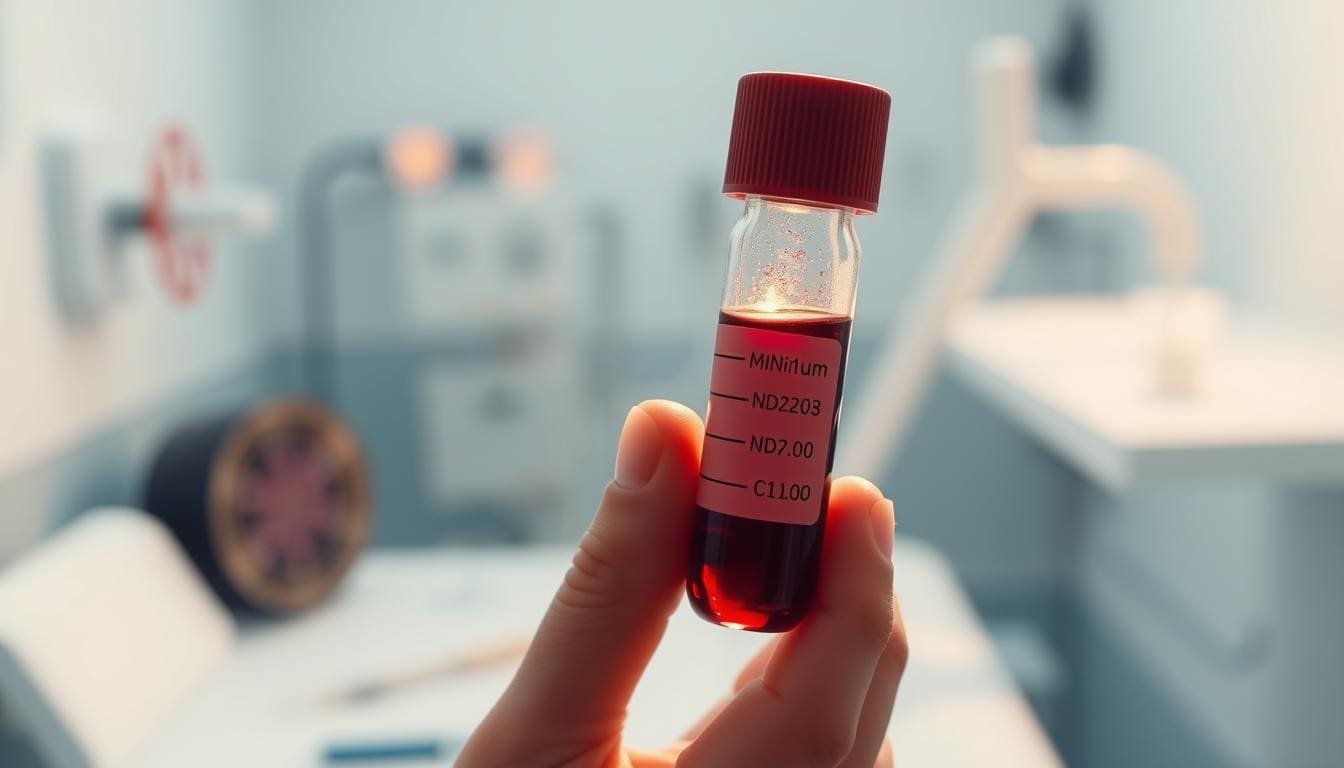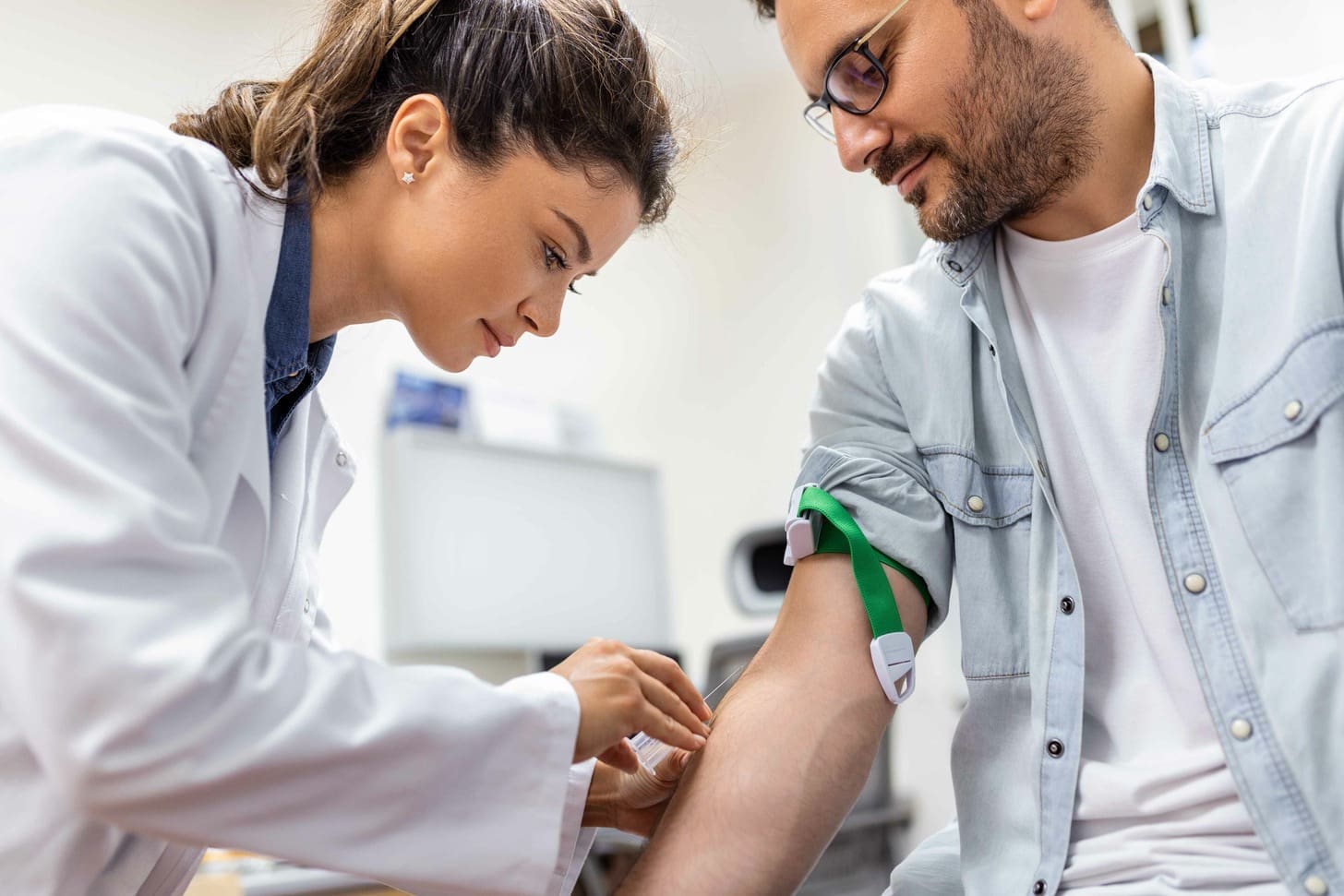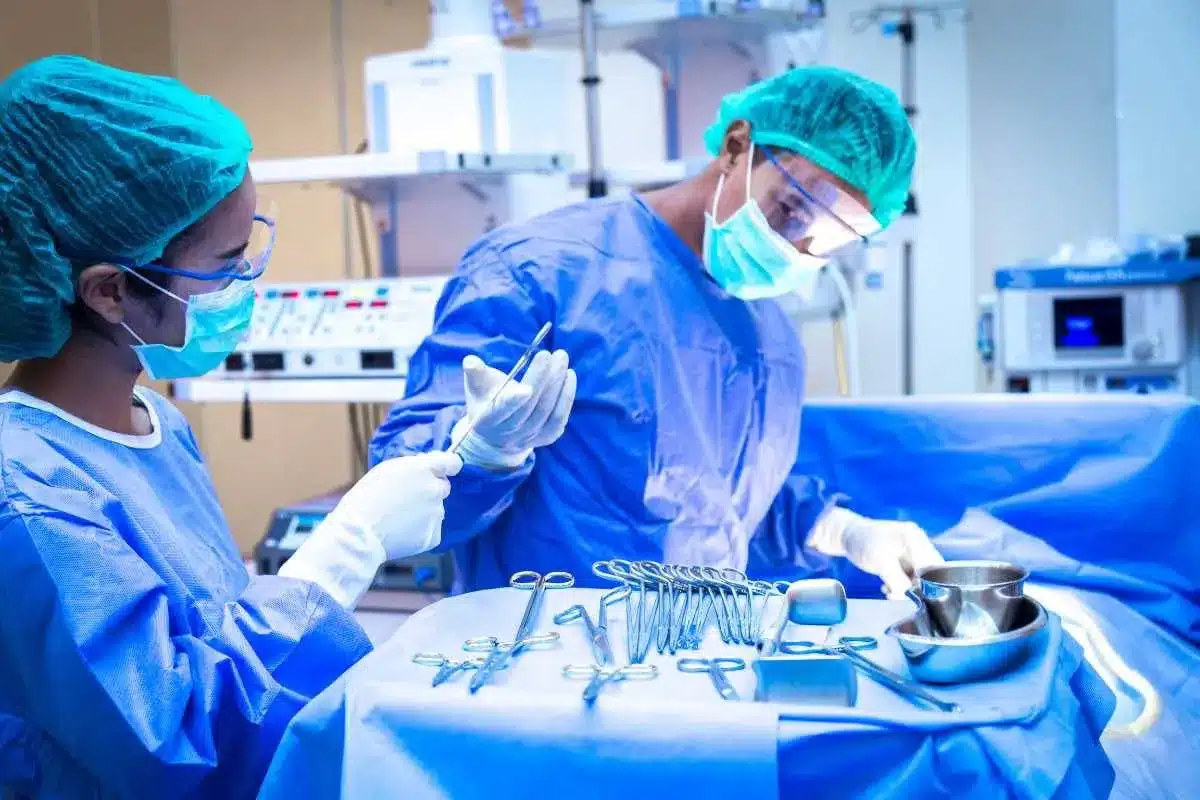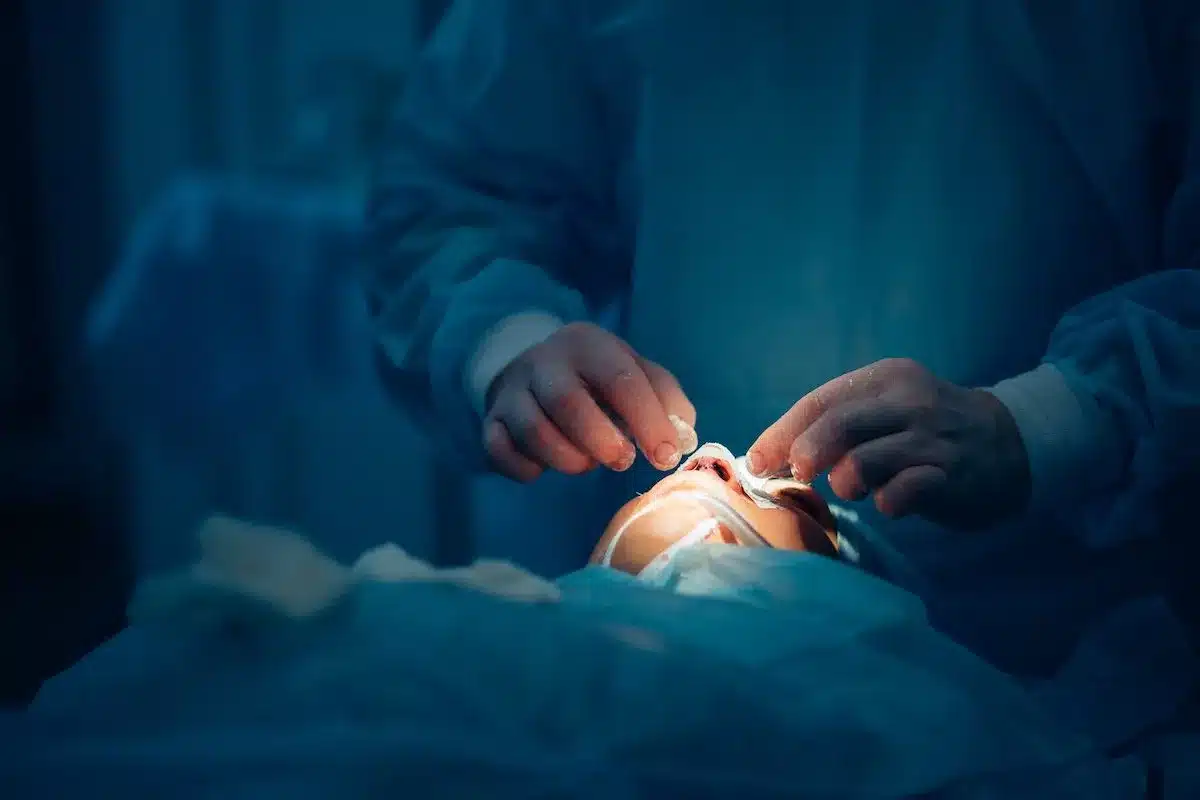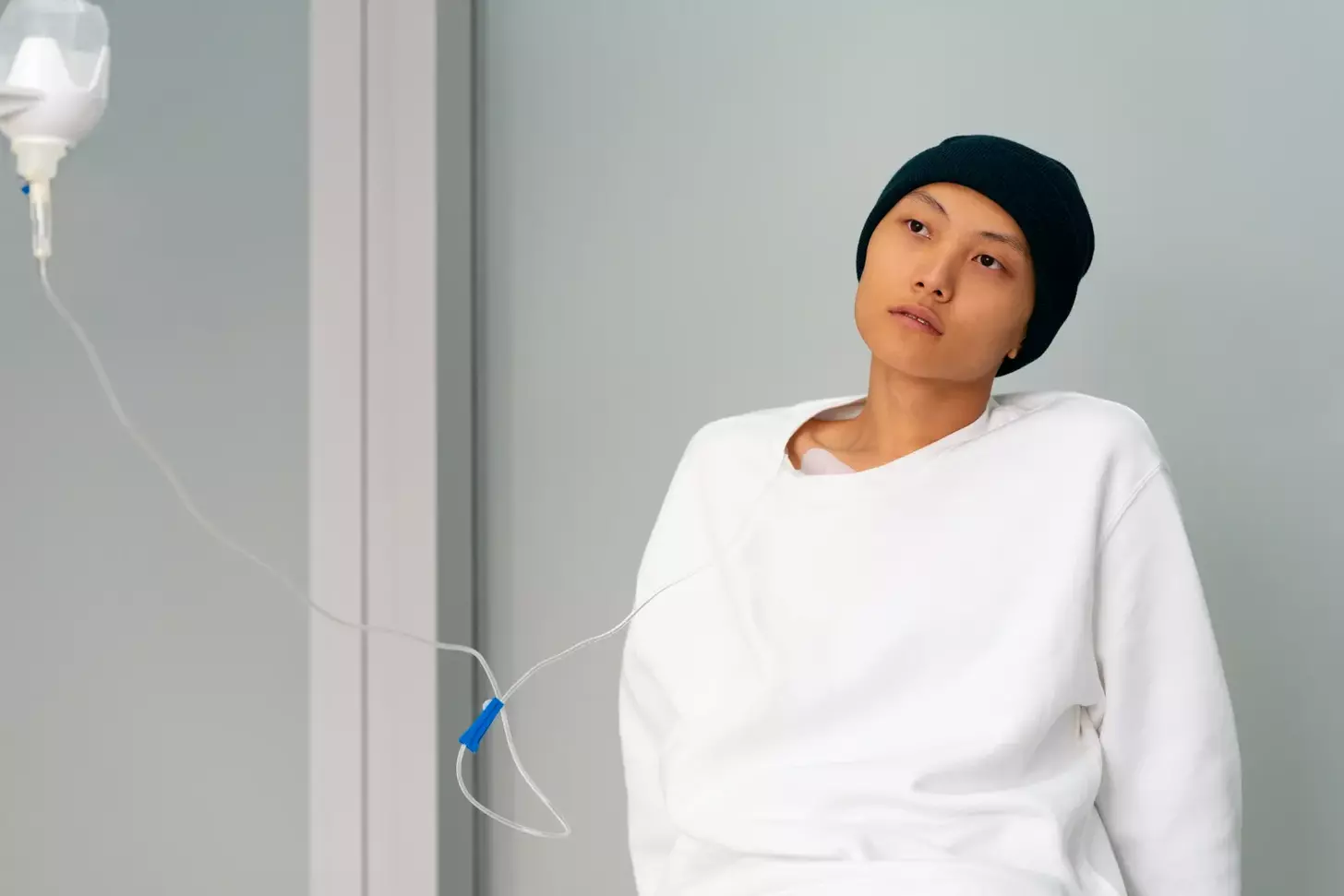
Chemotherapy is a key part of treatment for many cancer patients. Yet, it brings a deep and lasting tiredness that doesn’t go away with sleep. At Liv Hospital, we see how chemotherapy and tiredness hurt our patients’ lives.
Cancer survivors like Selma Blair and Melissa Wells-Lemonds share their struggles with cancer fatigue symptoms. We know how tough it is and aim to help in all ways. Our goal is to tackle the fatigue after chemo from every angle.
Key Takeaways
- Chemotherapy-induced fatigue is a common and burdensome side effect for many cancer patients.
- It affects patients physically, emotionally, and mentally, impacting their quality of life.
- Understanding the causes of fatigue is key to managing it well.
- Personalized care and support are vital for patients going through treatment.
- Liv Hospital is committed to top-notch healthcare and support for international patients.
The Prevalence and Impact of Chemotherapy-Related Fatigue
Fatigue is a big problem for people getting chemotherapy. Up to 90% of them feel very tired during treatment. This tiredness can really mess up their daily lives.
Statistics on Fatigue Among Cancer Patients
Many cancer patients get very tired from chemotherapy. This tiredness is not just a small issue. It’s a debilitating condition that makes everyday tasks hard. A study found that many patients say fatigue is one of the worst symptoms, along with pain and nausea.
How Chemo Fatigue Differs from Normal Tiredness
Chemo fatigue is much worse than regular tiredness. It doesn’t get better with rest or sleep. Patients say it feels like a deep, draining exhaustion.
For example, Melissa Wells-Lemonds, a breast cancer survivor, talked about how hard it was to deal with fatigue during chemotherapy. It really affected her daily life.
To learn more about what cancer tiredness feels like, check out this resource. It gives a detailed look at the condition.
Impact on Quality of Life
Chemo-related fatigue has a huge impact on a patient’s life. It affects their physical, mental, and emotional health. Even simple tasks become hard, and talking to others can feel overwhelming.
The emotional toll of constant fatigue can make patients feel isolated and depressed. This makes recovery even harder.
It’s important to understand how big of a deal chemotherapy-related fatigue is. By knowing its impact, doctors can help patients more. This can improve their quality of life during and after treatment.
The Biology Behind Fatigue After Chemo
Chemotherapy-induced fatigue is a complex issue. It happens because of the changes in our body during treatment. The treatment kills cancer cells but also harms healthy cells. This harm leads to a series of changes that make us feel tired.
It’s important to know why this happens. This knowledge helps us find ways to manage the fatigue better.
Cellular Damage from Chemotherapy Agents
Chemotherapy agents kill fast-growing cells, but they also harm healthy ones. This damage affects the bone marrow, gut, and other tissues. It reduces the production of important cells and proteins, causing fatigue.
Chemotherapy can also damage the mitochondria, which are the energy-making parts of cells. When mitochondria don’t work well, cells make less energy. This leads to feeling tired and weak.
Energy Production Disruption
Chemotherapy can mess with how our body makes energy. It can harm the mitochondria, reducing ATP production. ATP is the main energy source for cells.
Also, chemotherapy can cause inflammation. This inflammation can disrupt energy production and make us feel more tired. Inflammatory cytokines can harm cell function, reducing energy levels.
Metabolic Changes in Muscles and Tissues
Chemotherapy can change how muscles and tissues work. This affects energy production and leads to fatigue. For example, some treatments can cause muscle wasting and changes in muscle metabolism. This reduces muscle strength and endurance.
| Biological Factor | Effect on Energy | Contribution to Fatigue |
|---|---|---|
| Cellular Damage | Decreased production of essential cells and proteins | High |
| Energy Production Disruption | Reduced ATP production | High |
| Metabolic Changes | Muscle wasting and decreased muscle strength | Moderate |
Understanding these factors helps us see why chemotherapy makes people tired and exhausted. Next, we’ll look at more reasons for this complex issue.
Anemia and Its Role in Chemotherapy Exhaustion
Anemia is a common side effect of chemotherapy that causes severe fatigue. It happens when chemotherapy targets cells in the bone marrow, which makes red blood cells. This can lead to a low count of red blood cells, affecting energy and quality of life.
Impact of Chemotherapy on Red Blood Cell Production
Chemotherapy can harm the bone marrow, where red blood cells are made. This harm can lower red blood cell production, causing anemia. The severity of anemia depends on the type of chemotherapy, dose, and health.
The Connection Between Hemoglobin Levels and Energy
Hemoglobin is key for carrying oxygen in red blood cells. Low hemoglobin levels mean tissues and organs don’t get enough oxygen. This leads to fatigue and weakness. Low iron levels can make this worse, reducing energy even more.
- Common symptoms of anemia include:
- Fatigue and weakness
- Shortness of breath
- Dizziness or lightheadedness
- Pale skin
Monitoring Blood Counts During Treatment
It’s important to check blood counts regularly during chemotherapy. This helps catch anemia early. Healthcare providers can then adjust treatment to manage anemia, helping to reduce fatigue. This approach can improve quality of life during treatment.
Understanding anemia’s role in chemotherapy exhaustion helps patients and doctors manage it better. This can lead to better outcomes and less fatigue.
Neuroinflammation: The Brain-Fatigue Connection
Chemotherapy can cause inflammation in the brain, leading to severe fatigue in many cancer patients. We’re learning how the brain and body interact with chemotherapy. This interaction affects our energy levels.
Pro-inflammatory Cytokines and Fatigue Severity
Research shows that certain proteins, called pro-inflammatory cytokines, can harm the brain. They make fatigue worse in cancer patients. These proteins are released by chemotherapy and affect how our body makes energy.
Studies link higher levels of these cytokines to more severe fatigue. We think controlling these proteins might help reduce chemotherapy-related fatigue.
Blood-Brain Barrier Changes During Chemotherapy
Chemotherapy can alter the blood-brain barrier, a protective layer around the brain. These changes make it easier for harmful substances to enter the brain. This can cause inflammation.
These changes in the blood-brain barrier are linked to fatigue and cognitive problems in cancer patients. It’s a key area of study for us.
Cognitive Effects and “Chemo Brain”
Many cancer patients experience cognitive issues, known as “chemo brain,” after chemotherapy. These issues include memory, concentration, and decision-making problems.
Neuroinflammation is thought to contribute to these cognitive effects. We’re studying how “chemo brain” relates to fatigue caused by chemotherapy.
By understanding the link between neuroinflammation and fatigue, we can find better ways to manage symptoms. This will improve the lives of cancer patients.
Hormonal Imbalances Contributing to Tiredness
Hormonal imbalances during cancer treatment can make you feel very tired. Cancer therapy affects many parts of the body, including the endocrine system. This system is key for hormone production.
Adrenal Function During Cancer Treatment
The adrenal glands make important hormones like cortisol. Cortisol helps the body deal with stress. Cancer treatment can impact adrenal function, changing cortisol levels. This can cause fatigue because cortisol is vital for energy and metabolism.
Thyroid Disruption and Energy Levels
The thyroid gland controls metabolism, and problems with it can lower energy. Cancer treatments, like chemotherapy and radiation, can harm the thyroid gland. This can lead to hypothyroidism (underactive thyroid) or hyperthyroidism (overactive thyroid). Both can make you feel tired, but in different ways.
Sex Hormone Changes and Fatigue
Sex hormones, like estrogen and testosterone, do more than just help with reproduction. They also affect energy and overall health. Cancer treatments can change these hormone levels, causing fatigue. For example, treatments that cause menopause in women or lower testosterone in men can greatly affect energy levels.
Hormonal imbalances are a complex part of cancer treatment that can really affect a patient’s life. It’s important to understand these changes to manage fatigue well.
Compounding Factors That Worsen Fatigue After Chemo
Chemotherapy can make you very tired. Other health problems and lifestyle choices can make this worse. While chemo fights cancer, its side effects can be tough to handle.
Sleep Disturbances and Insomnia
Cancer patients often have trouble sleeping. This makes fatigue even worse. Insomnia can be caused by pain, anxiety, or discomfort from treatment.
Try to sleep at the same time every night. Make your bedroom a cozy place to rest.
Pain and Its Energy-Draining Effects
Pain can make you even more tired. It takes a lot of energy to deal with pain. Finding ways to manage pain is key to fighting fatigue.
Nutritional Deficiencies and Dehydration
Not getting enough nutrients and staying hydrated can also make you tired. Cancer patients might not feel like eating or might have trouble getting enough nutrients because of treatment side effects. Drinking enough water and eating well is important for energy.
| Nutritional Element | Role in Energy Production | Common Deficiency Symptoms |
|---|---|---|
| Iron | Crucial for transporting oxygen to cells | Fatigue, weakness, pale skin |
| Vitamin B12 | Essential for energy production in cells | Fatigue, weakness, neurological changes |
| Magnesium | Important for muscle and nerve function | Muscle cramps, fatigue, weakness |
Emotional Stress and Anxiety
Feeling stressed and anxious can also make you tired. The emotional weight of having cancer and going through treatment can be hard. Look into stress-reducing activities like mindfulness or therapy to help.
Understanding and tackling these extra challenges can help manage fatigue after chemo. This can improve the lives of cancer patients.
The Timeline of Chemotherapy-Induced Fatigue
Chemotherapy fatigue doesn’t follow a one-size-fits-all timeline; it can manifest differently at various stages of treatment. Understanding this timeline is key for patients and caregivers to manage expectations and plan.
Acute Fatigue During Treatment Cycles
Acute fatigue often starts shortly after chemotherapy begins and gets worse with each cycle. This fatigue is due to the immediate effects of chemotherapy on the body.
Key factors contributing to acute fatigue include:
- Chemotherapy drug side effects
- Changes in blood cell counts
- Nutritional deficiencies
Cumulative Fatigue with Ongoing Treatment
As chemotherapy continues, fatigue can become cumulative, meaning it worsens over time. This is because the body’s stress from treatment builds up.
Post-Treatment Persistence of Tiredness
For many patients, fatigue persists after chemotherapy ends. This post-treatment fatigue is due to the body’s ongoing recovery and long-term effects of chemotherapy.
When Energy Levels Typically Return
The timeline for when energy levels return to normal varies among individuals. Generally, energy levels start to improve several months after treatment ends. But, full recovery can take up to a year or more in some cases.
| Stage | Characteristics | Typical Duration |
|---|---|---|
| Acute Fatigue | Occurs during treatment cycles, related to immediate chemotherapy effects | During and shortly after treatment |
| Cumulative Fatigue | Worsens over time due to ongoing treatment stress | Throughout treatment and potentially after |
| Post-Treatment Fatigue | Persists after chemotherapy ends, related to recovery and long-term effects | After treatment completion, potentially up to a year or more |
Understanding the timeline of chemotherapy-induced fatigue helps patients and caregivers prepare for the challenges ahead. It also helps them seek the right support when needed.
Medical Interventions for Cancer-Related Exhaustion
Managing cancer-related fatigue includes many medical treatments and supportive care. Each patient’s experience is different. What works for one might not work for another.
Medications That May Help Manage Fatigue
Several medications can help with cancer-related fatigue. Psychostimulants can improve alertness and energy. But, their use must be carefully considered due to side effects.
Antidepressants and anti-anxiety drugs may be used to treat symptoms like depression and anxiety. These can also help with fatigue.
Treating Underlying Anemia
Anemia is common in cancer patients, often due to chemotherapy. It happens when there are not enough red blood cells or when red blood cells lack hemoglobin.
Treating anemia can greatly reduce fatigue. This may involve iron supplements, erythropoiesis-stimulating agents (ESAs), or blood transfusions. The treatment depends on the cause and severity of anemia.
When to Discuss Fatigue with Your Oncology Team
It’s important for patients to talk about their fatigue with their oncology team. Healthcare providers can help manage fatigue and suggest treatments.
Keeping a fatigue diary is helpful. It tracks when fatigue happens, how long it lasts, and what makes it better or worse. This information helps tailor a management plan.
Emerging Treatments for Chemo Fatigue
Research on cancer-related fatigue is ongoing. New treatments are being explored. These include exercise programs tailored to cancer patients, cognitive behavioral therapy (CBT), and mindfulness-based interventions.
Studies also look at the benefits of nutritional supplements and pharmacological agents for fatigue.
Lifestyle Strategies to Combat Fatigue After Chemotherapy
Chemotherapy-induced fatigue can be really tough. But, there are ways to feel better. It’s key to manage fatigue to improve life after cancer treatment.
Exercise Recommendations During and After Treatment
Regular physical activity is a top way to fight fatigue after chemo. Gentle exercises like yoga or short walks can boost energy. Start with easy activities and slowly increase them as you get stronger.
Exercise not only cuts down on fatigue but also boosts physical and mental health. Always talk to your doctor before starting any new exercise, even after chemo.
Nutrition Approaches to Boost Energy
Eating right is key to fighting fatigue. Eat foods rich in nutrients like fruits, veggies, whole grains, and lean proteins. Drinking lots of water is also important.
Stay away from processed foods and sugary items to keep energy stable. A nutritionist can help create a diet plan that fits your needs during and after treatment.
Sleep Hygiene Techniques for Cancer Patients
Good sleep is vital for managing fatigue. Stick to a regular sleep schedule and have a calming bedtime routine. Make your bedroom dark, quiet, and cool for better sleep.
Steer clear of caffeine and screens before bed for better sleep. If sleep issues last, talk to your doctor for help.
Energy Conservation and Activity Pacing
It’s important to pace yourself and save energy. Focus on one task at a time and break it down. Take breaks and rest when you need to.
Use calendars or planners to plan out your day. Listen to your body and adjust your plans to avoid getting too tired.
Psychological Approaches to Managing Chemo-Related Tiredness
Managing chemo-related tiredness involves more than just physical methods. It also requires addressing the psychological effects. This can greatly improve a patient’s quality of life.
Cognitive Behavioral Therapy for Fatigue
Cognitive Behavioral Therapy (CBT) is a key tool in fighting cancer-related fatigue. It helps patients change negative thoughts that make them tired. By doing so, they can boost their energy and well-being.
A study in the Journal of Clinical Oncology showed CBT cuts down on fatigue in cancer patients. It helps them manage their symptoms better and stay physically active.
“CBT is a highly effective intervention for managing cancer-related fatigue. It empowers patients to take control of their symptoms and improve their quality of life.”
Mindfulness and Meditation Benefits
Mindfulness and meditation help cancer patients feel less tired. They reduce stress and anxiety, leading to more energy and better sleep.
| Benefit | Description |
|---|---|
| Reduced Stress | Mindfulness and meditation decrease the production of stress hormones like cortisol. |
| Improved Sleep | Regular practice can lead to better sleep quality, reducing fatigue. |
| Enhanced Well-being | Patients report an overall improvement in their sense of well-being and quality of life. |
Support Groups and Their Role in Coping
Support groups offer a space for cancer patients to share and learn. They help patients feel less alone and more empowered to cope with fatigue.
Studies show support groups can reduce feelings of isolation and improve mental health. Patients gain insights from others facing similar challenges, helping them manage their fatigue better.
Setting Realistic Expectations During Recovery
Setting realistic goals is vital during recovery. Patients should avoid pushing themselves too hard to avoid worsening fatigue. Healthcare providers can guide them on managing their energy effectively.
By using these psychological methods, patients can create a strong plan to fight chemo-related tiredness. This improves their overall quality of life.
Conclusion: Moving Forward Despite Chemotherapy Fatigue
Understanding and managing chemotherapy fatigue is key for cancer patients to live better lives. By knowing why they feel tired and finding ways to fight it, they can get past chemo fatigue. This helps them move forward in their fight against cancer.
We’ve looked at why people feel tired after chemo, like anemia, brain inflammation, and hormone changes. By tackling these issues and using a wide range of strategies, patients can feel better. This makes their cancer treatment more effective.
Beating fatigue after chemo needs a mix of medical help, lifestyle changes, and mental support. Patients can work with their doctors to manage their fatigue. This way, they can improve their recovery from cancer.
What is chemotherapy-induced fatigue?
Chemotherapy-induced fatigue is a side effect of cancer treatment. It affects patients physically, emotionally, and mentally. It’s a persistent tiredness that makes daily activities hard.
How common is fatigue among cancer patients?
Fatigue is very common among cancer patients. Many experience tiredness that affects their daily lives. It’s one of the most common side effects of chemotherapy.
How does chemo fatigue differ from normal tiredness?
Chemo fatigue is more severe and lasts longer than normal tiredness. It’s not helped by rest. It can also cause pain, sleep problems, and emotional stress.
What causes fatigue after chemotherapy?
Fatigue after chemotherapy comes from several causes. These include damage to cells, changes in energy production, and hormonal imbalances. Anemia and neuroinflammation also play a role.
How does anemia contribute to chemotherapy exhaustion?
Anemia, caused by chemotherapy, lowers hemoglobin levels. This leads to fatigue. It’s important to monitor blood counts during treatment.
What is the connection between neuroinflammation and fatigue?
Neuroinflammation, changes in the blood-brain barrier, and cognitive effects cause fatigue. This phenomenon is known as “chemo brain.”
How do hormonal imbalances during cancer treatment contribute to tiredness?
Hormonal changes, like those in the adrenal and thyroid glands, affect energy levels. These changes can cause fatigue.
What compounding factors worsen fatigue after chemotherapy?
Sleep issues, pain, nutritional deficiencies, dehydration, and emotional stress make fatigue worse. These factors add to the challenge of managing fatigue.
When does fatigue typically occur during chemotherapy treatment?
Fatigue can start during treatment cycles. It can build up with ongoing treatment and last after treatment ends. Knowing when fatigue happens helps in managing it.
What medical interventions are available to manage cancer-related exhaustion?
There are medications and treatments for underlying conditions like anemia. Talking to the oncology team is also key. New treatments offer hope for better managing fatigue.
What lifestyle strategies can help combat fatigue after chemotherapy?
Exercise, good nutrition, sleep hygiene, and conserving energy are important. These strategies help manage fatigue and improve life quality.
How can psychological approaches help manage chemo-related tiredness?
Cognitive behavioral therapy, mindfulness, meditation, and support groups help. They aid in coping with fatigue and improving well-being.
How can patients manage fatigue after chemotherapy?
A holistic approach is best. This includes medical treatments, lifestyle changes, and psychological support. It improves life quality and treatment success.
What are some tips for managing chemo fatigue?
Rest, stay hydrated, eat well, exercise gently, and use stress-reducing techniques. These tips help manage fatigue.
Can fatigue be a sign of cancer recurrence?
Fatigue after treatment is not always a sign of cancer coming back. But, any concerns should be discussed with the oncology team.
How long does fatigue last after chemotherapy?
Fatigue duration varies. Some people may feel tired for months after treatment. Others may recover faster.


